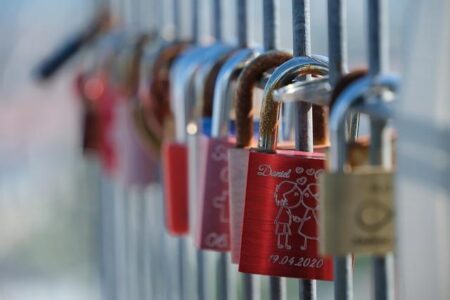Germany’s defence minister has issued a cautionary call to bolster national security while steering clear of provocation, warning against falling into Russian President Vladimir Putin’s so-called “escalation trap.” As tensions persist in Eastern Europe, the minister emphasized the need for a balanced approach that strengthens defences without triggering unintended conflict, highlighting the delicate challenge faced by NATO allies in responding to Moscow’s assertive posture. This statement comes amid ongoing debates over military support and strategic deterrence in the face of Russia’s aggressive actions.
Build Strong Defences to Deter Aggression Without Provoking Conflict
In a delicate balancing act, Germany’s defence minister emphasized the importance of cultivating resilience without crossing into provocative posturing. The message underscores a strategic approach where fortifications and military readiness are enhanced to discourage aggression, yet calibrated to avoid escalating tensions unnecessarily. This nuanced stance reflects a broader European concern: safeguarding sovereignty and security while steering clear of what is termed the ‘escalation trap’ – a situation where defensive measures could inadvertently trigger an aggressive response.
Key components of this strategy include:
- Measured military enhancements that boost deterrence but avoid offensive symbolism.
- Transparent communication to prevent misunderstandings about defence intent.
- Multilateral cooperation to reinforce alliances and share security burdens.
| Defence Posture | Potential Risk | Mitigation Strategy |
|---|---|---|
| Fortified Borders | Perceived as aggressive | Open dialogue with neighbours |
| Increased Military Presence | Escalation of tensions | Clear defense-oriented messaging |
| Advanced Weapons Systems | Security dilemma | Transparency and arms control talks |
Lessons from Putin’s Escalation Trap and How Europe Can Navigate Risks
Europe faces a delicate challenge: strengthening its defences without triggering a dangerous spiral of escalation. The German defence minister warns of the risks inherent in falling into what experts call Putin’s “escalation trap,” an approach where increased military posturing invites disproportionate responses, raising the stakes far beyond initial intentions. Avoiding this requires nuanced diplomacy, calibrated military readiness, and a recognition that signalling strength must never come at the expense of stability.
Key strategies for Europe to navigate this complex landscape include:
- Enhancing defensive capabilities focused on deterrence rather than provocation
- Building stronger alliances that emphasize collective security and clear communication
- Investing in de-escalation channels and crisis management mechanisms
- Prioritizing intelligence-sharing to anticipate and respond to potential threats swiftly
| Approach | Outcome |
|---|---|
| Military Build-up | Increases deterrence but risks escalation |
| Diplomatic Engagement | Reduces misunderstandings, manages tensions |
| Alliance Unity | Presents a united front, strengthens credibility |
| De-escalation Initiatives | Facilitates conflict resolution, prevents miscalculations |
German Defence Minister Calls for Strategic Restraint Amid Rising Tensions
Germany’s Defence Minister has actively urged caution in military responses amidst escalating geopolitical frictions in Eastern Europe. Emphasizing the need for balance, the minister highlighted the critical importance of strengthening national defenses without falling into aggressive posturing that could provoke further conflict. This stance reflects a strategic approach aimed at avoiding direct confrontation with Russia, particularly President Vladimir Putin’s leadership, which Berlin fears could exploit heightened tensions to justify intensified military actions.
Among the key measures advocated are:
- Enhancing defense capabilities through targeted investments and modernization programs
- Maintaining dialogue channels with international partners to lower misunderstanding risks
- Adopting restraint in military deployments near conflict zones to prevent unintended escalation
| Aspect | Recommended Approach | Potential Effect |
|---|---|---|
| Military Readiness | Selective upgrades | Strengthen defense without provocation |
| Diplomatic Engagement | Open communication | Prevent misunderstandings |
| Geopolitical Posture | Measured restraint | Reduce escalation risk |
In Summary
As Germany and its allies continue to bolster their defensive capabilities amid heightened tensions with Russia, the call from the German defence minister serves as a cautionary reminder. While strengthening security remains a priority, avoiding actions that could provoke an uncontrollable escalation is equally vital. The delicate balance between deterrence and diplomacy will likely define the next phase of European security strategy in the face of an unpredictable geopolitical landscape.




